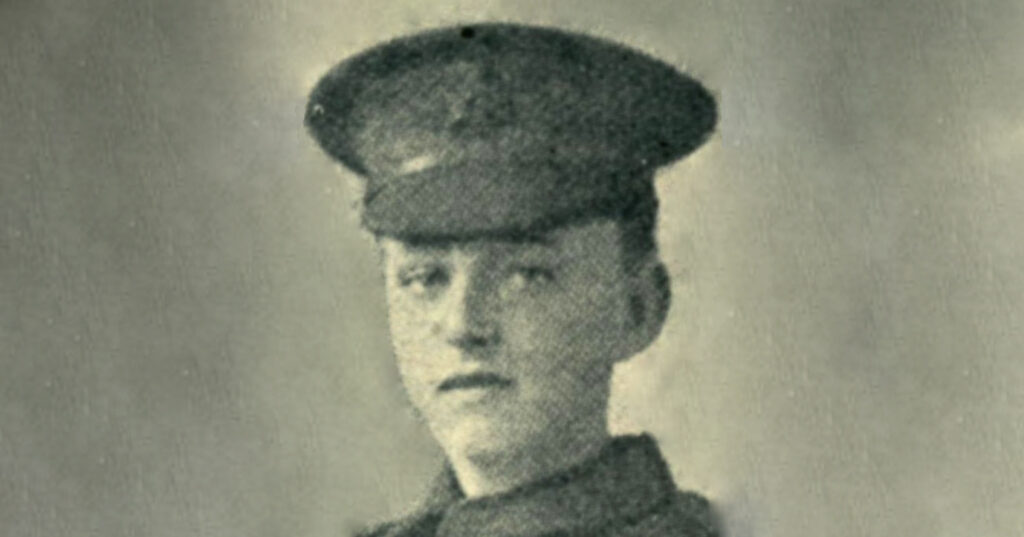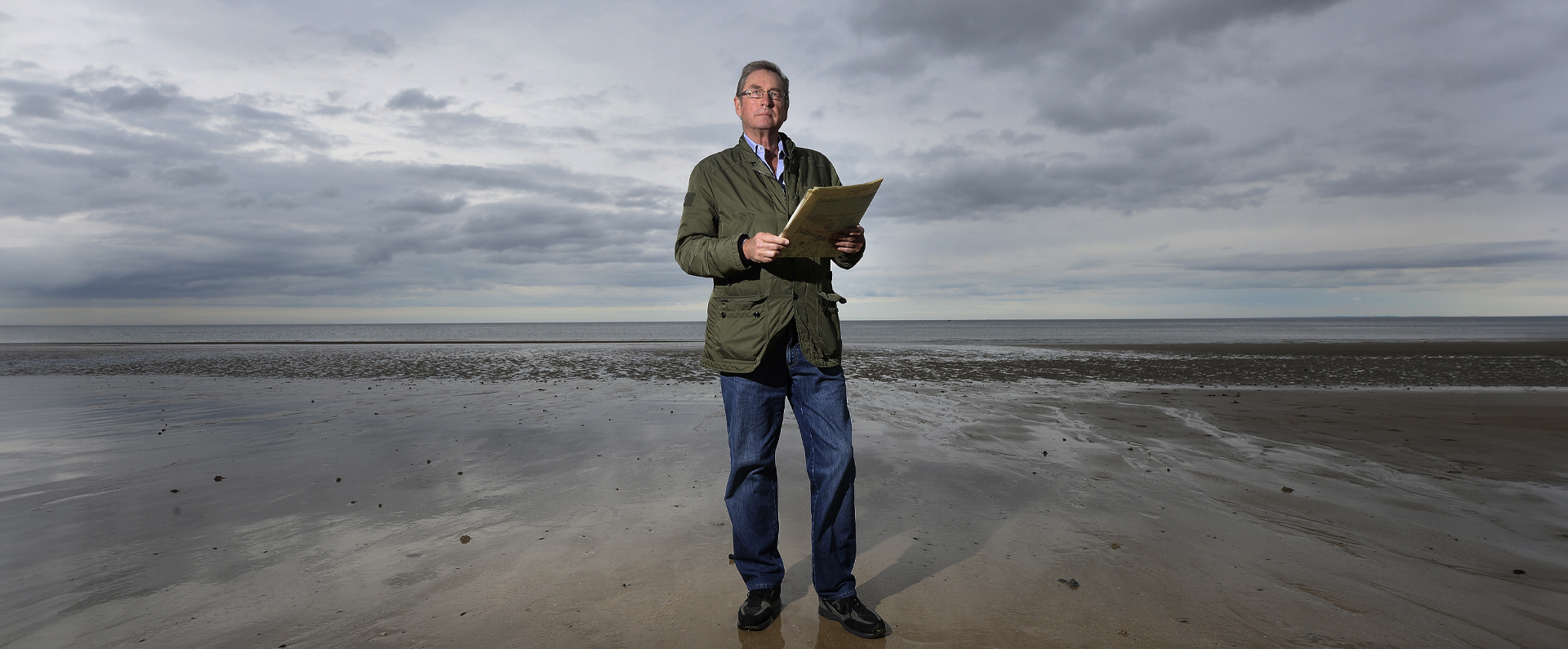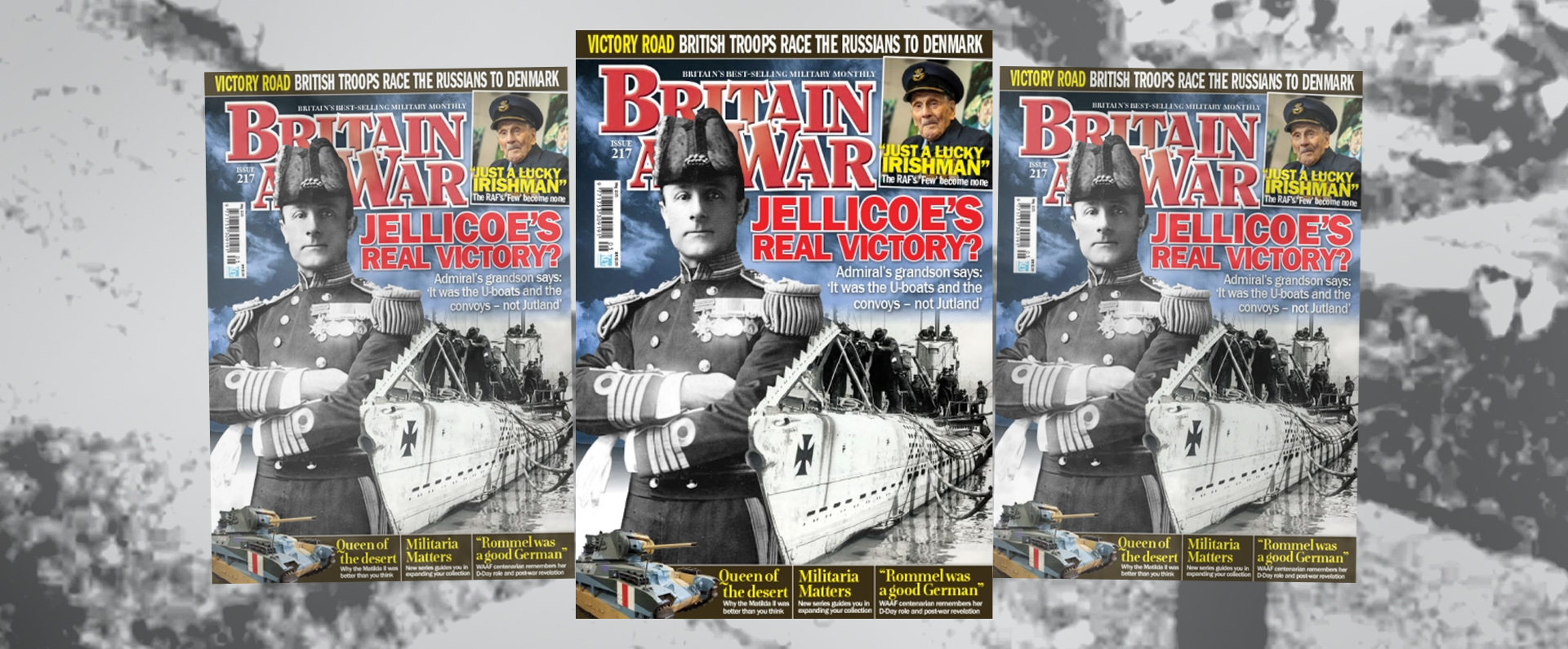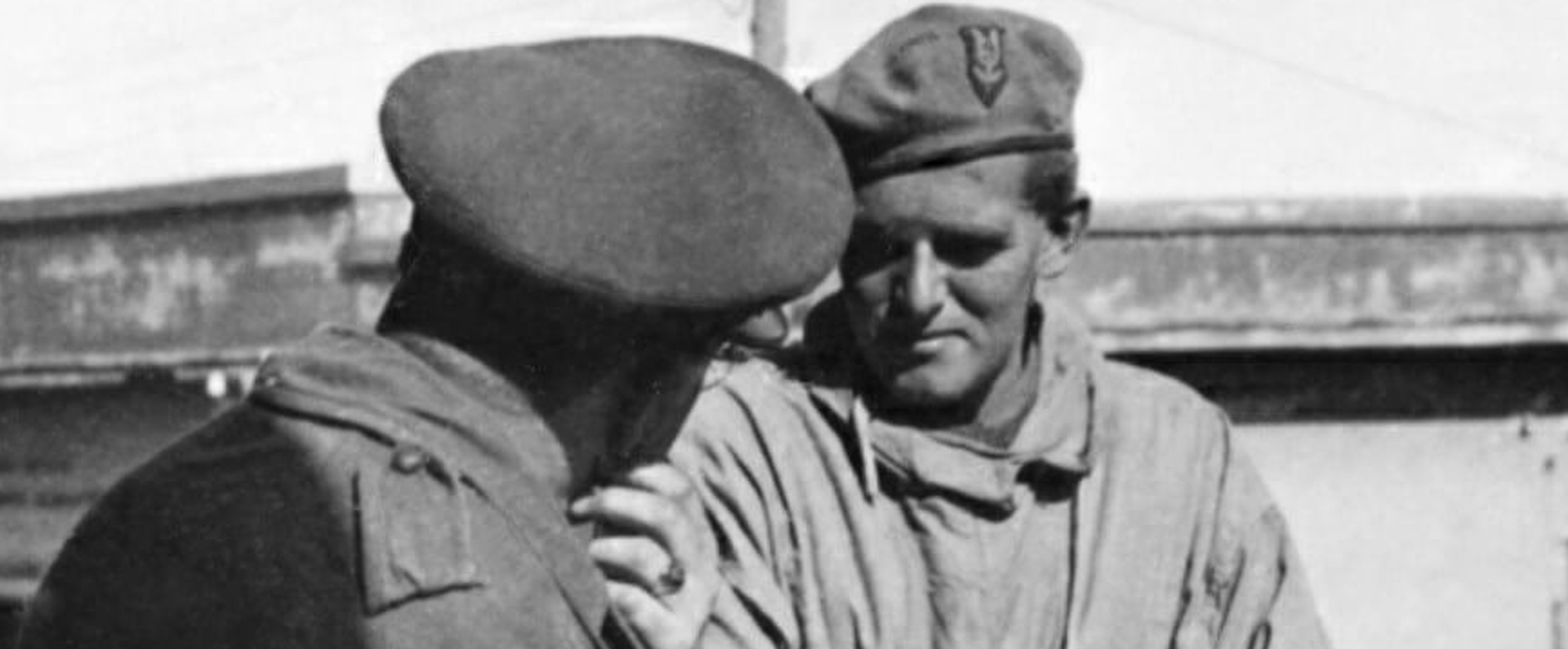
Published in Britain at War in November 2013.
Private George Peachment VC
During the First World War, some boys who had lied about their age enlisted when they were in their mid-teens. Most had little, or no, imagination of the horrors that they would encounter in the trenches or the difficulties they would face, at such a tender age, being wrenched away from their families.
It was therefore little surprise that many of the teenagers who served during the Great War were looking for a father figure to guide them. Some built up close relationships with the officers in charge of them, particularly their company commanders, and this, in turn, often inspired great loyalty on both sides.
George Peachment was not the youngest man ever to be awarded the Victoria Cross (VC): that honour is held by Andrew Fitzgibbon, who was just fifteen when his great bravery at the storming of the North Taku Fort, during the so-called Second China War in 1860, was recognised.
Nevertheless, Peachment remains one of the youngest to receive Britain and the Commonwealth’s most prestigious gallantry award, and his devotion to his company commander, Captain Guy Dubs, after the officer had been seriously wounded, was truly remarkable.
Peachment, the son of a barber, was born in Tottington, near Bury, Lancashire, on May 5 1897. After being educated locally at three schools, he became an apprentice fitter at Ashworth & Parker and, later, at a second Bury firm, J. H. Riley.
On April 19 1915, Peachment enlisted into the 5th King’s Royal Rifle Corps, falsely giving his age as 19 years and one month when he was actually only 17 years and 11 months old. To aid the deception, Peachment wore his father’s bowler hat in order to make himself look older than he was, at a time when a soldier had to be 19 in order to serve overseas.
In the event his military career got off to an inauspicious start when he went absent from 7.30pm on July 2 1915 until 8.10 am on July 5, for which he was fined seven days’ pay. Peachment then transferred into the 2nd Battalion of the King’s Royal Rifle Corps upon being posted to France on July 27, 1915.
On September 19 1915, and by now aged 18 years and four months, he was confined to barracks for three days for having a dirty bayonet while on parade. However, just six days later, he found himself in the thick of the action on the opening day of the Battle of Loos, the largest British offensive mounted on the Western Front during 1915.
The battle had begun in earnest at 6.34am on September 25, although by then there had already been a four-day artillery barrage of the German front line to “soften up” the enemy. However, when the British decided to employ poison gas, things did not go to plan.
Men of the 2nd Battalion King’s Royal Rifles and 1st Battalion Loyal North Lancs found themselves forced to go “over the top” because they were choking and coughing on their own gas, which had drifted back into the British front lines after the canisters had been fired at the German positions.
Thereafter, two enemy machine-guns which had somehow escaped damage during the artillery bombardment took a terrible toll on the advancing British soldiers. A few “Tommies” managed to reach the enemy’s barbed-wire defences but were soon cut down by heavy fire. Unsurprisingly, the attack faltered and soldiers were forced to take cover in shell holes and natural hollows.
At 7.30 am, those few who had survived began to straggle back to their trenches although young George Peachment was not amongst them, due to his bravery in going to the aid of his commanding officer.
In the event, Dubs survived his serious injuries and later wrote an affectionate and moving letter to Peachment’s mother, Mary, spelling out, how courageous her son had been both in battle and in death. “I cannot tell you how sorry I am that your brave son was killed, but I hope it may be some little consolation to you to know how bravely he behaved and how he met his end . . .
`”When we reached the [barbed] wire we found it absolutely untouched by our artillery fire and an almost impassable obstacle as a result. However we had to push on, and I gave the order to try to get through and over it. Your son followed me over the wire and advanced with me about 20 yards through it till we were only about 15 yards from the German trench.
“None of the other men of the line were able to get as far and he was the only man with me. As a matter of fact I had not noticed your son was with me, but at this point a bomb hit me in the eye, blowing it and part of my face away. I fell to the ground, but on sitting up, found your son kneeling beside me. The German fire was at this time very intense, but your son was perfectly cool.
“He asked me for my field dressing and started bandaging my head quite oblivious to the fire. His first thought was to help me, and though there was a shell hole nearby where he might have got cover, he never thought of doing so. Of course the Germans were bound to see us sitting up, and one of them threw a bomb which hit your son in the chest while at the same time I received a bullet also in the chest.
“Your son was beyond feeling any pain, though still alive. I tried to drag him into the shell hole and at the same time keep him from moving, but at that moment a bullet hit him in the head and killed him. After his first wound he was bound to die, in fact he was already, immediately after he received it, unconscious to any pain. I lay beside him there all day, and eventually we were both picked up in the late afternoon when the trench was taken by a flank attack.
“I can’t tell you how much I admired your son’s bravery and pluck. He lost his life in trying to help me and no man could have been braver than he was . . . I have recommended him for the VC and have heard that the Commanding Officer has seen the recommendation.
“If he gets it, it is sad to think he is not in this world to receive all the congratulations he would get, but perhaps it may be a comfort to you . . . Your son died the finest death that man can die, he showed the greatest gallantry a man can show; and I hope these facts may help you in your sad loss, together with the fact that he was spared all pain and suffering.”
The recommendation by Dubs for Peachment’s VC was approved and the London Gazette detailed the baby-faced rifleman’s courage when publishing his citation on November 18 1915: “During very heavy fighting, when our frontline was compelled to retire in order to reorganise, Pte. Peachment, seeing his Company Commander, Capt. Dubs, lying wounded, crawled to assist him. The enemy’s fire was intense, but, though there was a shell hole quite close, in which a few men had taken cover, Pte. Peachment never thought of saving himself.
“He knelt in the open by his officer and tried to help him, but while doing this he was first wounded by a bomb and a minute later mortally wounded by a rifle bullet. He was one of the youngest men in his battalion, and gave this splendid example of courage and self-sacrifice.”
Peachment’s posthumous VC was presented to his mother by George V at Buckingham Palace on November 29 1916. His body was never recovered but he is commemorated on the Loos Memorial, which lists the names of more than 20,000 British and Commonwealth soldiers who died during the battle.
I purchased Peachment’s gallantry and service medals at auction in 1996, ten years after buying my first VC. The remarkable letter from Peachment’s company commander to his mother accompanied the medals.
In October 2006, the residents of Bury honoured their “forgotten soldier” at a ceremony to unveil a plaque commemorating the life of Peachment, the only Bury serviceman ever to be awarded the VC. I was approached by Alistair Burt, then the Conservative MP for Bury North, and asked if I would allow Peachment’s VC to be brought to the service.
I readily agreed and I was later delighted to read a report in the Bury Times that the event at St Anne’s Church, Tottington, Bury, had been such a success. The bronze plaque that was unveiled had originally been installed at Parkhills United Methodist Church but was later found in the back room of the Lancashire Fusiliers Museum.
The Rev Hugh Bearne, the vicar of St Anne’s Church, told his local paper: “No-one knew we had the VC and you could cut the atmosphere with a knife when the procession entered the church. And when we played the traditional sunset hymn for the Army, there was not a dry eye in the church. We are proud and honoured to have this monument in our church.”
The vicar added: “Peachment is the most distinguished man and was the forgotten man of Bury until last Sunday [the day of the service]. How there is not a George Peachment Street or something similar is staggering – and that is not a criticism of Bury as it is the same across the country.”
I fully support the Government’s initiative, announced earlier this year, to lay commemorative paving stones in the home towns of all those who were awarded the Victoria Cross (VC) during the Great War. It is absolutely right that the “bravest of the brave” should receive this very special recognition.
Download a PDF of the original Britain at War article
For more information, visit:
LordAshcroftOnBravery.com


